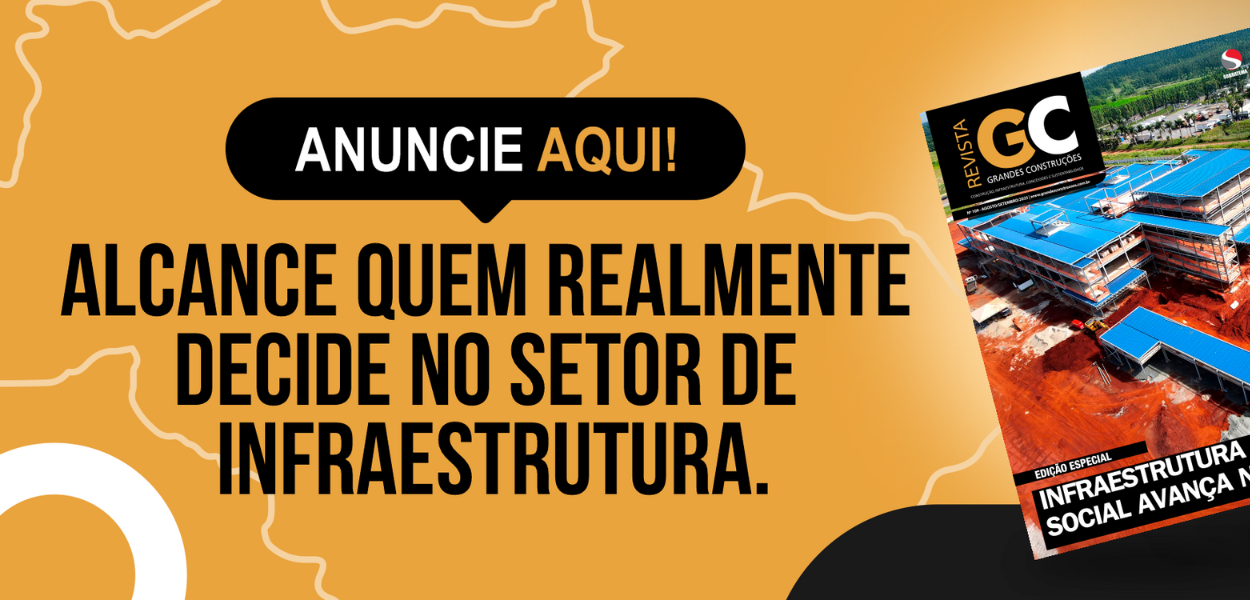Concessionaires demand more time and financing to carry out works on the roads

Private investors complain about the reduction in the volume of vehicles circulating on the roads, what would reduce the income of funds
In a scenario of political crisis, economic retraction and low attractiveness for long-term investments, the industry of road infrastructure received strong impacts. According to the Brazilian Association of Road Concessionaires (ABCR), the traffic of vehicles in roads under private concession was reduced. The result was a reduction of 1.8 percent of toll incomes in 2015 if compared to 2014. The main setback was felt in the traffic of heavy vehicles (6 percent), caused by the reduction of industrial production. The traffic of light vehicles was reduced in 0.4 percent. In 2016, the accumulated reduction was of 1.9 percent, being -4.7 percent in heavy vehicles and -1.0 percent in light vehicles.
With lower cash, most concessionaires gave priority to emergency and maintenance works—just to ensure their right to collect the toll—postponing large works of route duplication or modernization.
The concessionaires went to the Presidential Palace claiming for the revision of their contracts for this time of crisis. The seven concessionaires that won the auctions carried out in the government Dilma Rousseff, between 2013 and 2014, wanted the loosening of the deadlines of road duplication works, in a total of more than 5000 km. The original contract deadline of five years could be extended to 10 years.
César Borges, CEO from Brazilian Association of Road Concessionaires (ABCR), alerts for the risk of judicialisation of their contracts if the demand is refused. Concessionaires say that they would have better conditions of financing if the deadline is doubled. Contracts establish that almost 70 percent of road investments may be supported by bank loans. But the situation of cash does not allow the integral access of the companies to the funds. In practice, liberated financings are oscillating between 40 and 50 percent.
According to ABCR, private investors are facing difficulties to obtain loans and are compelled to invest their own cash resources—already short—to go on with the works. The entity remembers that—in September, 2013—BNDES, Caixa Econômica Federal and Banco do Brasil committed to finance 70 percent of the projects, but this percent was reduced to a value around 45 percent of the total. In addition, banks started to demand that the borrowers would prove that they will have income enough to honor the commitment. But considering the reduction in the volume of vehicles circulating in the toll stations it will be more and more difficult to prove this situation.
Concessionaires also claim about the difficulties to approve environmental licenses for duplication works in continuous sections, even in 40-year old roads whose lanes for duplication were already reserved by the federal government. The private industry also claims about the increase of more than 80 percent in the price of basic inputs (asphalt) produced by Petrobras since the concession started.
The answer of these claims came in June 6 with the approval of the Act 13.448/2017 with vetoes. This act—which came from the Provisional Measure 752—established the conditions for extension and rebidding of partnership contracts between government and private industry. Rules are restricted to federal projects that are part of the Programa de Parcerias de Investimentos (Partnership Program of Investments - PPI).
Among the presidential vetoes are the article that would allow concessionaries to get loans, financing and debts, offering in warranty rights coming from the partnership, from actions which represent the control of its share capital and from bonds and marketable securities that could be issued in the future. The articles that could charge the concessionaire by services that would be assigned to public authorities—especially the Federal Police or the Federal Government—in terms of road costing, maintenance and operation were also rejected.
Due to unconstitutionality, the article establishing that “institutions supervised by the Central Bank” and “government entities of development” would be charged by environmental damages caused by the partnership contracts only in situations where “proven malice or fault” occurred was also rejected.
Under determined conditions, the contracted company may propose a friendly termination of the contract of partnership instead of letting the process of expiration due to non-compliance of the contract go on.
Till the end of the re-bidding, the company that is going through difficulties cannot use the regimes of judicial and extra-judicial recovery established in the Act 11.101/2005, except when there will be no company interested in accepting the business.

Av. Francisco Matarazzo, 404 Cj. 701/703 Água Branca - CEP 05001-000 São Paulo/SP
Telefone (11) 3662-4159
© Sobratema. A reprodução do conteúdo total ou parcial é autorizada, desde que citada a fonte. Política de privacidade










